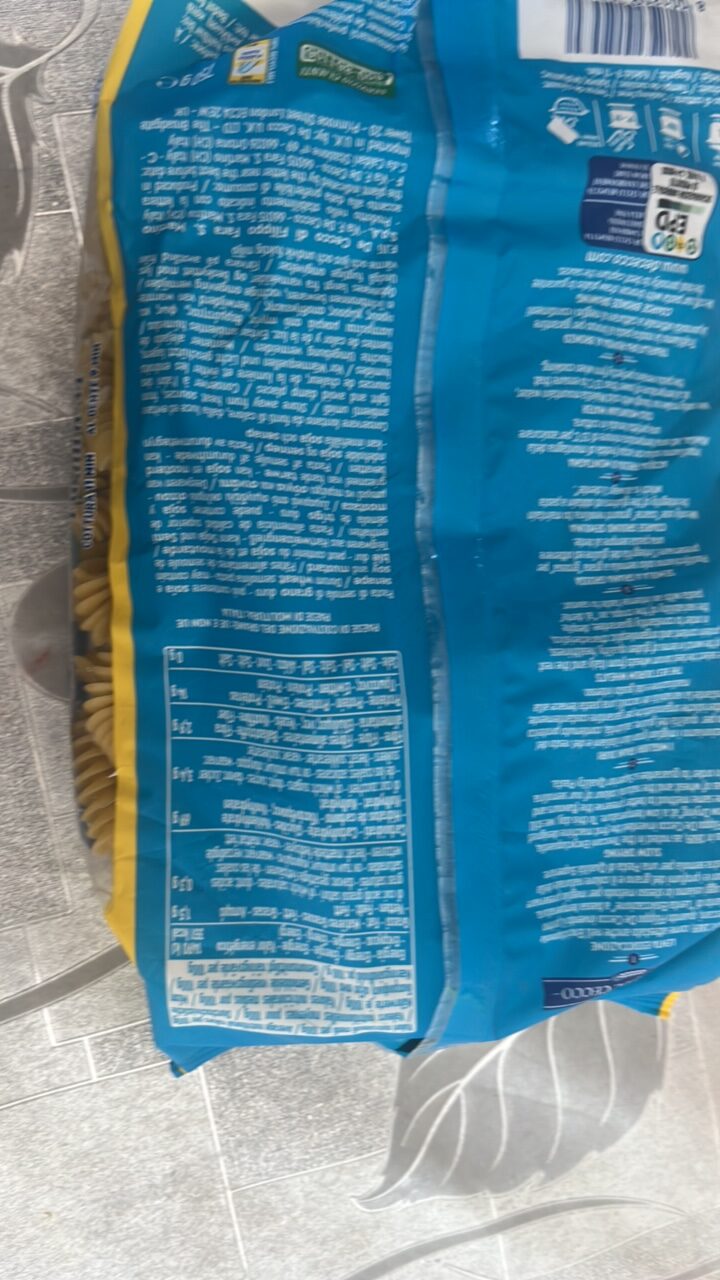
Barcode: 8001250012470
HALAL
📝 Reason: Quranic standards are satisfied in this product. Surah Al-Baqarah (2:172) commands believers to eat pure provisions. Our analysis detected no pork derivatives (6:145), no blood (2:173), and no intoxicants—aligning with Hanafi, Maliki, Shafi’i, and Hanbali rulings.
🏷️ Category: Pasta
📄 Certificates: Www.Dececco.Com, May Contain Soy And Mustard, Store Away From Heat Sources And Avoid Damp Places, Produced In Italy, Imported In Uk By De Cecco, The Badigate Tower 20 Primrose Street London
Ingredients:
Details
Understanding the Halal Status of This Pasta
When it comes to choosing food products, many consumers seek assurance that what they are purchasing adheres to Halal standards. In this post, we will thoroughly explore the Halal status of this pasta product, ensuring it meets the necessary Quranic requirements and considering the ingredients used.
Halal Certification Overview
Our analysis concludes that this pasta meets Halal criteria as outlined by the Quran. Specifically, Surah Al-Baqarah (2:172) commands believers to consume pure and wholesome provisions. We conducted a detailed assessment with regard to the presence of any forbidden items such as pork derivatives (6:145), blood (2:173), and intoxicants. Notably, the findings confirmed that this product aligns with the rulings of all major Islamic schools of thought: Hanafi, Maliki, Shafi’i, and Hanbali.
A Closer Look at Ingredients
The ingredients listed for this pasta include:
- Durum wheat semolina
- May contain soy
- Mustard
Now, let’s delve deeper into the Halal status of each component:
1. Durum Wheat Semolina
Durum wheat semolina is the primary ingredient in this pasta. It is considered permissible in Islam and has no known issues concerning Halal compliance. As a staple in many pasta varieties, it is recognized for its high protein content and quality.
2. May Contain Soy
The product label mentions that it may contain soy. Generally, soy products are Halal as long as they do not undergo processing with any non-Halal substances. Since no specific additives or processing information raises concern, it remains permissible under Islamic law.
3. Mustard
Mustard, the next ingredient, is also Halal. It is widely used in various cuisines and does not pose any risks regarding Halal compliance. As long as it is sourced correctly, mustard can be enjoyed in diverse culinary applications, including pasta recipes.
Quality and Certification
This pasta is produced in Italy and imported to the UK by De Cecco, ensuring high production standards. The company’s commitment to quality is reflected in its website (Www.Dececco.Com) and multiple certificates of compliance. All products that are Halal certified go through rigorous checks to ensure consumers can enjoy them with confidence.
Best Practices for Storage
For optimal quality, it is advisable to store this pasta away from heat sources and in a dry place, ensuring its integrity before consumption. Following these guidelines retains the pasta’s quality and flavor, allowing for enjoyable meals.
Final Thoughts
In summary, this pasta is indeed Halal, confirmed through an analysis of its ingredients and adherence to Islamic guidelines. By choosing this product, you can enjoy a delicious pasta meal without compromising your dietary beliefs. Whether you’re preparing a simple dish or an elaborate family feast, this pasta stands as a Halal-compliant option you can trust. Feel free to explore different recipes and indulge in your culinary creativity!
